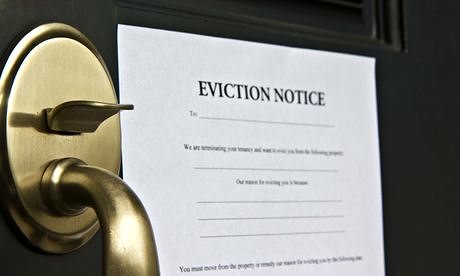An average of only one rogue landlord per council is prosecuted each year according to Parliament figures.
Speaking in a debate about the Housing and Planning Bill, the Labour MP Karen Buck claimed that over the last eight years only 2,000 landlords have been prosecuted for housing disrepair across the whole of the UK. The low number of landlord prosecutions stands in sharp contrast with the estimated 700,000 privately rented properties which have a category one hazard which include faulty electrics, damp and broken boilers.
The figures were presented in a debate about standards in the Private Rented Sector in February. During the session, Ms Buck asked the Government’s Planning Minister, Brandon Lewis, whether the low number of landlord prosecutions provided irrefutable evidence that local authorities lack the resources to investigate cases of housing disrepair.
Mr Lewis was also asked whether laws should be passed to allow tenants to take civil action against rogue landlords when their properties are unfit for human habitation. In response Mr Lewis claimed that the proposed Housing and Planning Bill would give councils extra resources to improve housing conditions. It was also stated that councils would be permitted to issue civil penalties against landlords of up to £30,000 and issue rent payment orders for up to 12 months’ rent.
Also participating in the debate was the Labour MP Tulip Siddiq who asserted that many of her constituents who rent privately have reported being the victim of revenge evictions. This comes despite the practice being made illegal for rental agreements signed since 1st October 2015.
Revenge evictions still a problem
Revenge or retaliatory eviction is where a landlord threatens to evict a tenant for requesting repairs or complaining about conditions in their home. It often this affects private tenants with assured shorthold tenancy (AST) agreements since they are the easiest to evict. ASTs are currently the most common type of tenancy agreement in the UK and is usually the default contract type for private sector renters.
Despite the new revenge eviction laws, many private tenants are worried that if they complain too much they will be evicted. Furthermore, figures gathered by Radio 1 Newsbeat through Freedom of Information requests show that more than half of local councils across England have not used their new powers under the revenge eviction law. Tightening of council budgets is also claimed to be a further impediment to investigating housing complaints. The Housing Law Practitioners Association is also concerned that the way the law is designed is too complicated.
The extent of the housing crisis comes as data show that private sector rented housing is the most expensive and has the lowest standards of any housing type. According to Parliament reports, private renters now spend an average of 49% of their income on rent despite nearly one-in-three privately rented houses failing to meet minimum government housing standards.
The Renters Alliance helps renters with bad landlords and letting agents. If you have a story you would like to share, please contact the National Renters Alliance through our website or email us at contact@nralliance.co.uk
